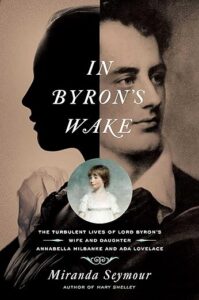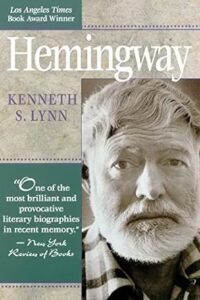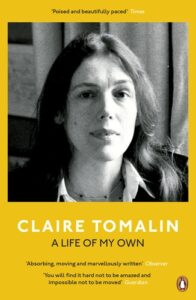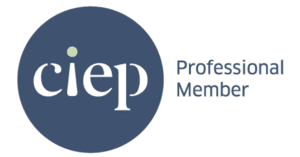Biographies of famous writers are a source of insights into the lives of the people who created some of the world’s greatest literary works. Through these biographies, we can gain a deeper understanding of the inspirations, motivations and challenges that shaped these writers’ lives and influenced their writing. From the tumultuous lives of Ernest Hemingway and Sylvia Plath to the eccentricities of Virginia Woolf, the biographies of famous writers offer a glimpse into their unique perspectives and creative processes.
This article explores some of the best biographies of famous writers that offer a comprehensive understanding of their lives, literary influences and creative processes. Moreover, it discusses how beginner writers can draw inspiration from the biographies of famous writers to craft their own non-fiction manuscript. Finally, this article touches upon how to write a bestselling biography of a writer. Read on to learn everything about biographies of famous writers.
- Biographies of famous nineteenth-century writers
- Biographies of famous twentieth-century writers
- How to draw inspiration from biographies of famous writers?
- How to write a bestselling biography of a famous writer?
Biographies of famous nineteenth-century writers

In Byron’s Wake: The Turbulent Lives of Lord Byron’s Wife and Daughter: Annabella Milbanke and Ada Lovelace (2018) by Miranda Seymour explores the lives of Annabella Milbanke and Ada Lovelace. The book sheds light on their relationships with Lord Byron and their own significant contributions to literature and science, respectively.
James Joyce (1959) by Richard Ellmann provides a comprehensive look at the life of the influential modernist writer James Joyce, known for works such as Ulysses and Dubliners.
Walt Whitman: A Life (1980) by Justin Kaplan offers a comprehensive exploration of the life of Walt Whitman, the influential American poet known for his groundbreaking work Leaves of Grass. This biography delves into his personal experiences, literary influences and cultural impact.
Flaubert: A Biography (2006) by Frederick Brown offers an in-depth exploration of Gustave Flaubert. It examines the life, influences and literary contributions of the French novelist known for his masterpiece Madame Bovary.

The Annotated Frankenstein (2012), edited by Susan J. Wolfson and Ronald Levao, provides extensive insights into Shelley’s life, influences and the creation of her iconic novel. While it is not a traditional biography, this comprehensively annotated edition of Mary Shelley’s Frankenstein is worth reading.
Louisa May Alcott: The Woman Behind Little Women (2009) by Harriet Reisen provides a detailed and engaging portrait of Louisa May Alcott, the author of the beloved novel Little Women, exploring her life, family and literary achievements.
Charlotte Brontë: A Fiery Heart (2016) by Claire Harman offers a vivid portrayal of Charlotte Brontë, the author of Jane Eyre and other classic novels, delving into her life, struggles and creative process.
Biographies of famous twentieth-century writers
J. R. R. Tolkien: A Biography (1977) by Humphrey Carpenter offers a captivating look into the life of J. R. R. Tolkien. The book explores literary influences, creative process and personal experiences of The Lord of the Rings and The Hobbit author.

Hemingway (1983) by Kenneth S. Lynn offers a thorough examination of Ernest Hemingway, the influential American writer known for his distinctive style and works such as The Old Man and the Sea and A Farewell to Arms.
Robert Frost: A Life (1998) by Jay Parini offers a detailed portrait of Robert Frost, the beloved American poet known for his evocative verse and rural themes, exploring his life and poetic legacy.
Young Eliot: From St. Louis to the Waste Land (2015) by Robert Crawford offers a compelling exploration of T. S. Eliot’s early years and influences, leading up to the creation of his seminal poem “The Waste Land.”
Nabokov in America: On the Road to Lolita (2015) by Robert Roper focuses on Vladimir Nabokov’s time in America and its influence on his life and work, particularly his writing of Lolita.

A Life of My Own (2017) by Claire Tomalin reflects on her own life as a biographer and journalist, offering insights into her experiences and methodologies in writing biographies of figures such as Charles Dickens and Jane Austen.
Elizabeth Bishop: A Miracle for Breakfast (2017) by Megan Marshall offers a compelling portrait of Elizabeth Bishop, the Pulitzer Prize-winning American poet known for her precise imagery and keen observation, exploring her life, relationships and poetic vision.
Red Comet: The Short Life and Blazing Art of Sylvia Plath (2021) by Heather Clark n provides an illuminating account of Sylvia Plath’s life, examining her struggles with mental illness, her complex relationships and her poetic achievements, including her iconic collection Ariel.
How to draw inspiration from biographies of famous writers?
Early career writers can draw valuable inspiration from biographies of famous poets and writers in several ways:
Understanding the writing journey
Biographies often detail the struggles, setbacks and successes of writers throughout their careers. By studying these journeys, early career writers can gain insight into the challenges they may encounter and the perseverance required to overcome them. Understanding that even the most celebrated writers faced rejection and uncertainty can provide encouragement and motivation.
Exploring creative processes
Biographies often delve into the creative processes of writers, revealing their methods, rituals and sources of inspiration. Beginner writers can learn from these insights and experiment with different approaches to writing. Whether it is outlining a structured plot or embracing freeform expression, discovering what works best for them can help them develop their unique voice and style.
Discovering literary influences
Biographies frequently highlight the literary influences that shaped the works of famous writers. Early career writers can explore the books, authors and genres that inspired their predecessors and incorporate similar influences into their own writing. By studying the works that resonated with their favourite writers, they can expand their literary horizons and enrich their creative palette.
Embracing personal experiences
Biographies often reveal the personal experiences and emotions that inform the writing of famous poets and writers. Early career writers can draw inspiration from these intimate insights and reflect on their own lives, relationships and observations. By tapping into their own emotions and memories, they can infuse their writing with authenticity and depth.
Learning from literary craft
Biographies offer glimpses into the literary craft of famous writers, from their use of language and imagery to their mastery of narrative structure and characterisation. Early career writers can analyse these techniques and apply them to their own writing. Moreover, they can experiment with different narrative techniques, dialogue styles and descriptive elements. By honing their craft and refining their skills, they can elevate the quality of their writing and captivate readers.
Finding resilience and inspiration
Many biographies recount the perseverance and resilience of writers in the face of adversity. Early career writers can draw inspiration from these stories of resilience, learning to navigate rejection and self-doubt. By embracing setbacks as opportunities for growth and learning, they can stay motivated and committed to their creative goals.
How to write a bestselling biography of a famous writer?
Writing a bestselling biography of a writer requires a combination of thorough research, engaging storytelling and strategic marketing. Here are some tips to help you craft a compelling biography:
Thorough research
Dive deep into the life of the writer you are profiling. Explore primary sources such as letters, journals and unpublished manuscripts, as well as secondary sources like previous biographies and scholarly articles. If possible, conduct interviews with family members, friends and colleagues to gain unique insights.
Compelling narrative
Structure your biography like a narrative to engage readers from start to finish. Identify key events, turning points and themes in the writer’s life and weave them into a cohesive storyline. Use vivid descriptions and anecdotes to bring the writer’s world to life.
Character development
Treat the writer as a complex character with strengths, weaknesses and contradictions. Show their evolution over time, including struggles, triumphs and failures. Provide psychological depth and insight into their motivations and desires.
Honesty and authenticity
Be honest in your portrayal of the writer, even if it means confronting controversial or uncomfortable aspects of their life. Readers appreciate authenticity and are more likely to trust a biography that presents a balanced and nuanced perspective.
Writing craft
Pay attention to your writing style and craft. Write with clarity, precision and elegance, using accessible yet engaging language. Experiment with narrative techniques such as foreshadowing, flashback and dialogue to maintain reader interest.
Professional editing
Consider hiring a professional editor to polish your manuscript. An experienced editor can provide valuable feedback on structure, pacing, tone and style, helping you refine your biography to its full potential. Look for editors with experience in biography or literary non-fiction.
- Developmental editing: Focuses on the overall structure, content and organisation of a manuscript. Developmental editors provide feedback on plot, character development, pacing and narrative flow. They may suggest significant revisions to improve the clarity, coherence and impact of the work.
- Line editing: Involves a detailed review of the manuscript at the sentence and paragraph level. Line editors focus on refining language, enhancing clarity and improving readability. They address issues such as awkward phrasing, repetitive language and inconsistencies in style or tone.
- Copyediting: Concentrates on the technical aspects of writing, including grammar, punctuation, spelling and syntax. Copyeditors correct errors, ensure consistency in language usage and adhere to the rules of style guides (e.g., AP, Chicago Manual of Style). They may also make suggestions to improve sentence structure and word choice.
- Proofreading: The final stage of the editing process, proofreading involves a meticulous review of the manuscript to catch any remaining errors or typos before publication. Proofreaders focus on minor details such as spelling mistakes, typographical errors, formatting inconsistencies and layout issues. They ensure the text is polished and error-free for publication.
Market research
Before you start writing:
- Research the market to identify potential readers and competitors.
- Analyse bestselling biographies in a similar genre or about similar writers to understand what makes them successful.
- Tailor your biography to meet the needs and interests of your target audience.
Effective promotion
Develop a strategic marketing plan to promote your biography effectively. Utilise social media, author websites, book tours and media appearances to reach potential readers. Leverage endorsements, reviews and word-of-mouth recommendations to generate buzz and build anticipation.
Final thoughts
In conclusion, biographies of famous writers offer a unique window into the lives, inspirations and creative processes of some of the most renowned literary figures. For beginner writers seeking inspiration or literary enthusiasts, these biographies offer a wealth of knowledge and insights.If you are interested in writing a biography of a writer, remember to thoroughly research, tell an engaging story and strategically market your work. With these tips in mind, you too can craft a compelling biography of a literary figure.
Contact me for a free sample edit of your manuscript (and remember to use my early bird discount). I am an experienced editor working with non-fiction, academic and business texts. I can help prepare your text for publication, from a big-picture analysis through highlighting your authorial voice to ensuring the correctness and consistency of the language.


